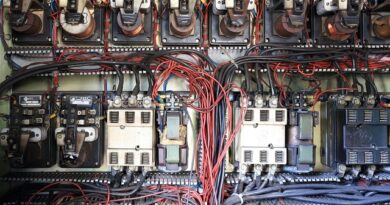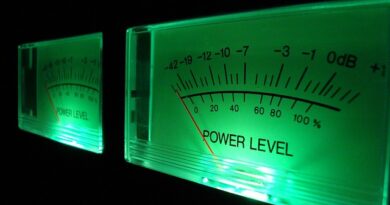Don’t Compromise on Safety: Essential Electrical Safety Audit Tips for Delhi
Introduction
In a bustling city like Delhi, electrical safety is of paramount importance. With its rapid growth and increasing infrastructure, ensuring the safety of electrical systems is crucial to prevent accidents and protect lives. This article provides comprehensive tips for conducting an effective electrical safety audit in Delhi, covering essential aspects to consider. From understanding regulatory requirements to inspecting wiring and appliances, this guide will help you prioritize safety and minimize risks.
Table of Contents
- Understanding the Importance of Electrical Safety Audits
- Identifying Regulatory Requirements
- Assessing Electrical Wiring and Connections
- Inspecting Electrical Appliances and Equipment
- Evaluating Earthing and Grounding Systems
- Checking Circuit Breakers and Fuses
- Ensuring Adequate Lighting and Emergency Exit Systems
- Conducting Fire Hazard Assessments
- Implementing Safety Measures for Outdoor Electrical Installations
- Training and Education for Electrical Safety
- Developing an Effective Maintenance Program
- Creating an Electrical Safety Audit Checklist
- Hiring Professional Electrical Safety Auditors
- Addressing Common Electrical Safety Issues in Delhi
- Conclusion
1. Understanding the Importance of Electrical Safety Audits
Electrical safety audits play a critical role in identifying potential hazards, ensuring compliance with regulations, and promoting a safe environment. By conducting regular audits, individuals and organizations can proactively address electrical risks, prevent accidents, and safeguard both property and human lives.
2. Identifying Regulatory Requirements
To conduct an effective electrical safety audit, it’s essential to be familiar with the regulatory requirements set by local authorities and relevant electrical safety standards. In Delhi, the Bureau of Indian Standards (BIS) and the Central Electricity Authority (CEA) provide guidelines and regulations for electrical installations. Compliance with these standards is crucial for maintaining electrical safety.
3. Assessing Electrical Wiring and Connections
Inspecting electrical wiring and connections is a fundamental aspect of an electrical safety audit. Faulty or outdated wiring can lead to electrical shocks, short circuits, and even fires. Ensure that all electrical wiring is properly insulated, free from damage, and adequately grounded. Additionally, check for loose connections, exposed wires, and signs of overheating.
4. Inspecting Electrical Appliances and Equipment
Electrical appliances and equipment should be regularly inspected to ensure their safe operation. Check for any signs of damage, frayed wires, or malfunctioning parts. Verify that appliances are properly grounded and that they meet the required safety standards. Replace any faulty equipment promptly to avoid potential hazards.
5. Evaluating Earthing and Grounding Systems
Proper earthing and grounding are crucial for electrical safety. Inspect the earthing system to ensure it effectively dissipates electrical currents into the ground, preventing electric shocks and minimizing the risk of electrical fires. Conduct tests to measure the earth resistance and ensure it is within acceptable limits.
6. Checking Circuit Breakers and Fuses
Circuit breakers and fuses protect electrical circuits from overload and short circuits. During the safety audit, inspect and test these protective devices to ensure they are in proper working condition. Replace any damaged or malfunctioning breakers or fuses promptly to maintain a safe electrical system.
7. Ensuring Adequate Lighting and Emergency Exit Systems
Proper lighting and emergency exit systems are crucial for maintaining electrical safety in buildings. Verify that all areas have adequate lighting, including staircases, hallways, and emergency exits. Test emergency lighting and exit signs to ensure they function correctly during power outages or emergencies.
8. Conducting Fire Hazard Assessments
Fire hazards pose significant risks in electrical systems. Assess the potential fire hazards by examining the proximity of flammable materials to electrical sources, ensuring proper ventilation in electrical rooms, and inspecting fire suppression systems. Implement necessary measures to minimize the risk of fires, such as installing fire-resistant materials and maintaining clearances.
9. Implementing Safety Measures for Outdoor Electrical Installations
Outdoor electrical installations are susceptible to weather conditions and other external factors. Inspect outdoor wiring, lighting, and electrical equipment for signs of damage caused by moisture, corrosion, or environmental factors. Ensure proper grounding and protection against water ingress to prevent electrical accidents.
10. Training and Education for Electrical Safety
Promoting a culture of electrical safety requires adequate training and education. Conduct regular safety training sessions for employees, educating them about electrical hazards, safe practices, and emergency procedures. Encourage employees to report any electrical safety concerns promptly.
11. Developing an Effective Maintenance Program
Regular maintenance is vital for ensuring the long-term safety and reliability of electrical systems. Develop a comprehensive maintenance program that includes routine inspections, cleaning, and testing of electrical equipment. Schedule preventive maintenance to address potential issues before they escalate into safety hazards.
12. Creating an Electrical Safety Audit Checklist
A well-structured checklist enhances the effectiveness of electrical safety audits. Create a detailed checklist that covers all critical areas of electrical safety, including wiring, appliances, earthing systems, emergency systems, and fire hazards. Regularly update the checklist to incorporate changes in regulations or emerging safety concerns.
13. Hiring Professional Electrical Safety Auditors
For complex electrical systems or large-scale audits, it’s advisable to hire professional electrical safety auditors. Experienced auditors possess the necessary expertise and tools to conduct comprehensive inspections and identify potential risks effectively. They can provide valuable insights and recommendations to enhance electrical safety in your premises.
14. Addressing Common Electrical Safety Issues in Delhi
Delhi faces specific electrical safety challenges due to its high population density, aging infrastructure, and energy demands. Address common issues such as voltage fluctuations, electrical theft, inadequate earthing, and substandard wiring. Collaborate with local authorities, electrical contractors, and experts to address these challenges effectively.
15. Conclusion
Electrical safety should never be compromised, especially in a vibrant city like Delhi. By following the essential electrical safety audit tips outlined in this article, individuals and organizations can minimize electrical risks, prevent accidents, and create a safer environment for all. Prioritize regular audits, compliance with regulations, and proactive maintenance to ensure the long-term safety of electrical systems in Delhi.




